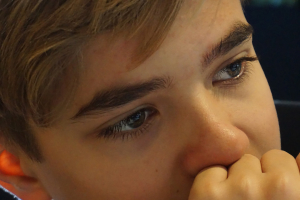 This week we witnessed a ruthless attack targeting teenagers and young people at the Manchester Arena at Ariana Grande’s concert. This has been one of the worst attacks in the UK in recent history, and our thoughts go out to all the people who have lost loved ones this week. Any attack is horrific, but the one that targets children seems more so. Not only are the families that have lost loved ones left to deal with the shock and trauma of such a sudden and violent attack, but the survivors are left to process it.
This week we witnessed a ruthless attack targeting teenagers and young people at the Manchester Arena at Ariana Grande’s concert. This has been one of the worst attacks in the UK in recent history, and our thoughts go out to all the people who have lost loved ones this week. Any attack is horrific, but the one that targets children seems more so. Not only are the families that have lost loved ones left to deal with the shock and trauma of such a sudden and violent attack, but the survivors are left to process it.
This week the questions on everyone’s lips was, how do we talk to our children about terror attacks? What do we say? How much do we say?
We, at Resilience Counselling Network have put together some points that may make it easier to talk to your children when they come to you with questions.
Validate their feelings
Acknowledge their fear or sadness while looking for ways to make them feel safe. Don’t minimise their fear.
Start a conversation
Ask open ended questions. Psychologist Emma Kenny says, “Ask them if they’ve heard the news and allow them to have that conversation. That’s how they can start to ask you the questions that really most people want to ask each other.”
Gauge what level of information your child wants. Try to be as honest and open with your answers to their questions, but make sure your responses and explanations are age appropriate and don’t bombard them with too much information.
Make your child feel safe
However horrific the recent events, ensure your family focuses on what’s good in the world and how these attacks can bring people together, not tear us apart. Ask them what would make them feel safe. Listen to them. Talk about heroes to counterbalance stories of terrorists.
Be available
If your child is upset, just spending time with him may make him feel safer. Children find great comfort in routines and doing ordinary things together as a family may be the most effective form of healing.
Monitor media
Allow children to watch the news but don’t let them become consumed by it. “Be mindful of any disturbing news coverage,” advises Katharine Hill, UK director at Care for the Family. “Even older children can be disturbed by graphic news content, so make sure their viewing is supervised.”
Monitoring social media feeds can be difficult, but having an open and honest conversation can lead to that discussion.
Lead by example
“Model calm,” advises family therapist Susan Stiffelman, “I know this is easier said than done, but children look to us to determine how they should feel about something. If you are frantic or beside yourself with worry, your children cannot help but be negatively affected. Find ways to bolster your spirit… to help you regain a sense of equilibrium as best you can so that you can be a calming presence for your kids.”
Be aware of little ears
“Don’t have big discussions about the current issues of the day in front of children,” advises Gummer. “The rule of thumb is to either talk to your children about it and allow them to ask questions and involve them in the discussions in an age appropriate way or don’t talk about it in front of them.
Talking to your children about terrorism is a horrible job, but a necessary one in the modern world and how you tackle it depends very much on their age.
Get more information on these points here.


Leave a Reply